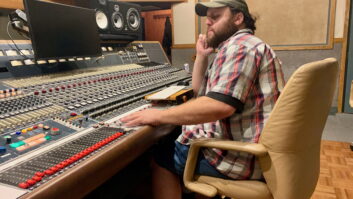
Lokesh Gulyani
JAIPUR, India — While many radio stations air similar content, some are able to differentiate themselves, emphasizing their distinct feel and flavor. Why is this?
Radio is governed by programming, it is the backbone of any station. The programming — music, DJ style and news — are what makes a difference, and the way for a station to stand out from the others.
Even though music is available by various means, such as streaming music services, we still need radio and programming. Radio turns mere music into a friend, companion, entertainer and a habit. Apart from music there are many other elements that complete the body of radio. These include commercials, DJ personalities, traffic updates, etc. The key however is to have all these elements work in harmony. To achieve this, a fixed program chart is essential for the control of timing, space allotment and quality.
DIFFERENT VIEWS
For some managers, programming means relying on their intuition and common sense when placing and producing broadcast content. Programming results are thus different for each station since the person driving the schedule and style uses their own perception.
For example, after the major bomb blast in Ajmer, India, in 2007, many program directors had the same question in their head: What do we play now? Of the radio stations operational immediately after the disaster, the majority started playing mellow music. DJ discussion was minimal as was the airing of jingles. A few hosts began giving information about the situation, others advised listeners not to panic, the rest tried to curb the spread of false information. The reaction of each station was different from their day-to-day programming but the responses were driven by their common sense and intuition.
For others, programming is basically just time management. They strive to ensure that a number of audio elements get played in a single day and that all time guidelines are followed. Then there are those who believe in teamwork. Their goal is to work together, advise each other and come out with an effective solution.
Thanks to distinct programming approaches, each station takes on its own personality and projects a certain philosophy, which contributes to the “color” of the brand.
No matter one’s approach, it is fair to say that successful programming should be based on a process of collective decision-making and reflect the surrounding environment — beliefs, culture, attitude and media consumption habits, for example.
A programmer therefore needs to combine his or her intuition and perception with logic and practical matters. They must be smart, attentive, observing and a psychological expert able to catch the attention and feeling of their listeners and not let them go.
Lokesh Gulyani, based in Jaipur, India, is a radio programming consultant and ex-program director. Contact him via email at: [email protected].
Radio World welcomes other points of view. Please send comments to [email protected].







